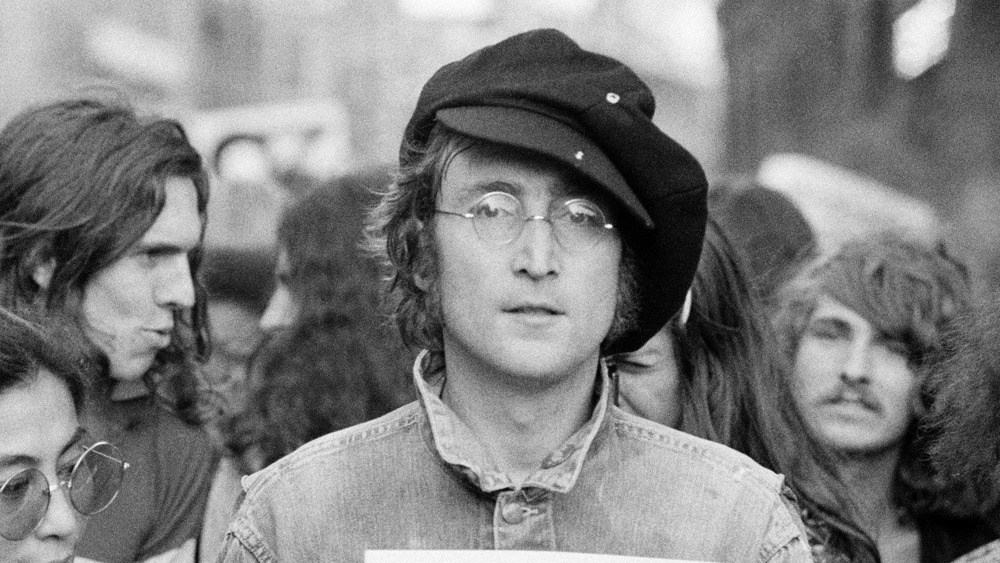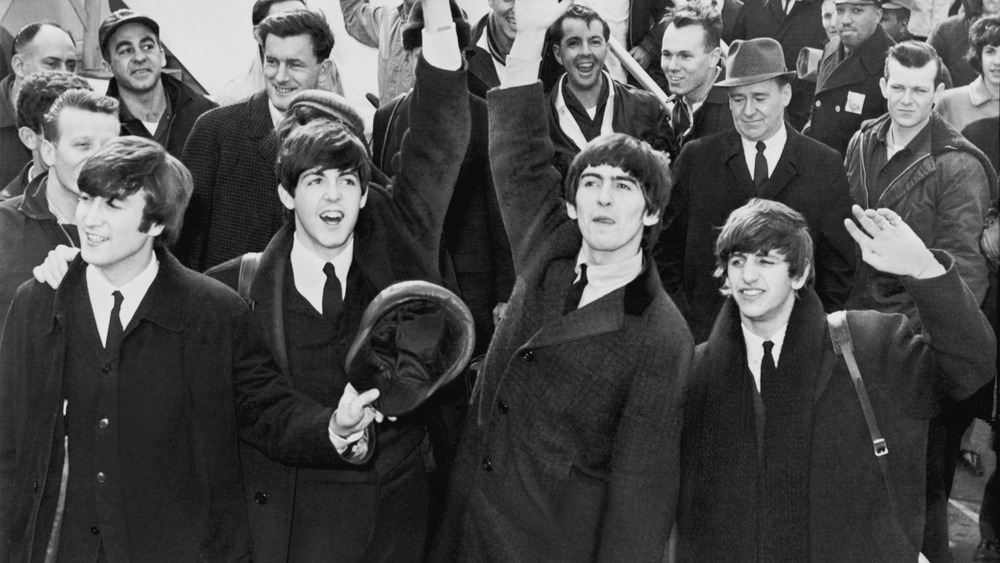Why There Were Plagiarism Allegations Against John Lennon
At first listen, it might not sound like there's much in common between Chuck Berry's 1956 "You Can't Catch Me" (listenable on YouTube) and the Beatles' 1969, bass-driven, smash hit from Abbey Road, "Come Together" (also listenable on YouTube). The tempos are different, the keys are different, and the lyrics are different (minus one line, but we'll get back to that). The melodic interval of the verse, however, is actually the same: take any 6-note line from "Come Together" and hum it: "He shoot Coca-cola," "He one spinal cracker," "He got muddy water," and so on. In fact, as CheatSheet points out, Paul McCartney recognized the similarity immediately when John Lennon first played it for him.
The relationship between Chuck Berry and The Beatles wasn't a new thing, though, even back then. As NME states, John Lennon said of Chuck Berry, "If you had to give rock and roll another name, you might call it Chuck Berry." Berry and the Beatles actually had a good relationship, as this tag-team video of Johnny B Good on YouTube attests. All musicians and artists influence each other, and, as Rolling Stone recounts, Lennon said of "Come Together," "It wasn't a rip-off; it was a love-in." McCartney added, "We pinch as much from other people as they pinch from us." This may be true, but it didn't stop the Beatles from not only being accused of plagiarism, but getting sued over it. In the end, it came down to lyrics.
He got lots of lawsuits, he use lots of music
Music publisher Morris Levy wound up suing John Lennon, the songwriter of "Come Together," over the lines, "Here come old flat-top / He come groovin' up slowly." This line resembles Berry's "Here come a flat-top / He was movin' up with me," which was grounds enough for a suit.
Accusations of not only Lennon's plagiarism, but that of the Beatles as a whole, are actually pretty well known at this point. The Huffington Post outlines numerous other examples, such as 1963's "I Saw Her Standing There," which borrowed from both Berry's "Little Queenie" (lyrics) and "I'm Talking About You" (bass). Then there's 1966's "Day Tripper," which pulls from Bobby Parker's "Watch Your Step," and 1968's "Revolution," which copies Pee Wee Crayton's "Do Unto Others." In fact, McCartney at one point expanded on his previous "pinch" comment and flat-out stated, "We were the biggest nickers in town. Plagiarists extraordinaires." Even George Harrison got pulled into the mix with 1970's "My Sweet Lord," for which he wound up paying $587,000 in damages, per CheatSheet.
Of course, it's important that credit for creative work goes to the proper source. And on that note, the list of the Beatles' supposedly plagiarized work is far, far shorter than the un-plagiarized work. The band's legacy, or the legacy of any individual band member, remains more than intact, and will most likely remain so for generations to come.

